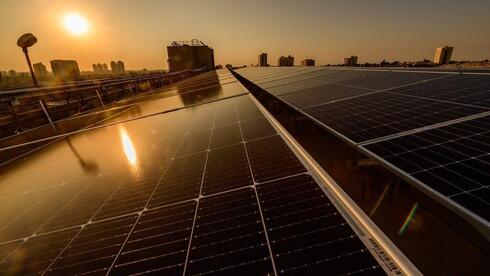Jerusalem, Dec 19.
Israeli scientists have developed a new prototype photovoltaic cell that generates green electricity and allows agricultural cultivation of the soil where they are installed, an innovation that will greatly reduce energy costs, the Hebrew University of Jerusalem said in a statement today.
Members of the Faculty of Agriculture and the Institute of Chemistry of the Hebrew University produced a new model of photoelectric cell” with “technologically proven efficiency and whose performance” could “drastically change the rules of the game in relation to solar energy and agricultural production “.
These solar cells will serve to cover agricultural spaces such as fields and greenhouses and bodies of water, while helping to generate green electricity and optimize agricultural production “without disrupting the natural habitats below the natural panels,” according to the Israeli scientists.
In turn, they will produce electrical energy “without depleting natural resources or damaging the environment” in the places where they are installed, while the “innovation will reduce the cost of energy per kWh (kilowatt hour) in Israel,” the university explained. .
If half of the country’s greenhouses are covered with these photoelectric cells, it will be possible to achieve “a production of green electricity that will exceed Israel’s national goal for 2050.”
The cells are produced from crystals of a mineral called perovskite, and all of this is done “in a relatively simple process, using cheap and readily available materials.”
“A chemical substitution makes solar cells transparent to the most efficient part of the light spectrum that drives photosynthesis, while much of the rest of the light energy is transformed into electricity,” they explain.
Professor Lioz Etgar, one of the authors of the research, points out that “for years it has been obvious that most of the light energy in agricultural greenhouses is wasted, since plants use only part of the light energy solar”.
Given this, the solution proposed by the Hebrew University “maximizes the production of solar electricity in agricultural land by 300%,” adds the expert.
These new photovoltaic cells are expected to have a much lower cost than the existing ones, since they are made with silicon; that improve growing conditions by reducing heat and carbon emissions; and that they serve to “save water and protect crops from damage caused by the weather, offering partial protection against pests and diseases.”

